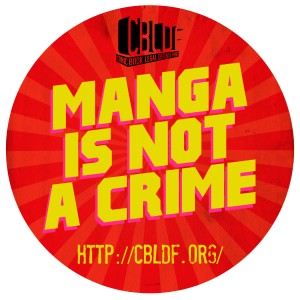 Although production and distribution of underage pornography have been illegal in Japan for (only) 15 years, possession of it currently is not. That will change later this month, when a law passed last week by the country’s House of Representatives goes into effect.
Although production and distribution of underage pornography have been illegal in Japan for (only) 15 years, possession of it currently is not. That will change later this month, when a law passed last week by the country’s House of Representatives goes into effect.
Virtually everyone can agree that this is a good thing; it’s long been recognized that the right to free expression does not encompass the right to cause actual harm to others. But some people in Japan are still pushing for the law to also apply to drawn, animated, or virtual pornography, such as can be found in some manga and anime. While these advocates may mean well, the only justification that they–and biased Western media reports–have yet been able to cite for the censorious impulse boils down to “it’s icky.”
Yes, a relatively small subset of Japan’s massive manga and anime industry focuses on underage characters in sexual situations. That may make a lot of people uncomfortable, but it does not actually harm anyone. Nevertheless, the very idea of the comics and videos being protected free expression is treated as preposterous in reports like this one from the Daily Beast, complete with scare quotes:
Publishers in Japan argue that the graphic depiction of underage boys and girls having sexual relations in manga doesn’t necessarily exploit real children, and that such a move would infringe on someone’s “freedom of expression.”
Another part of the same article seems to actually advocate for the prosecution of thought crimes, noting with chagrin that the new law does not “discourage fantasies about all sorts of child abuse stimulated by manga and anime.” A CNN report at least includes a quote from Japan Animation Creators Association lawyer Daisuke Okeda, who points out that “banning such expression in animation under this law would not satisfy the goal of the law” which is to protect real minors from harm. But Okeda is mostly drowned out by opposition and ethnocentrism (“the portrayal of young girls as sex objects in Japan has long raised eyebrows among Westerners”) in the rest of the article.
What all of these reports fail to mention is that representational underage pornography still falls into a legal grey area even in the United States. Congress tried to outlaw drawn, animated, or sculpted underage obscenity (which must meet a more stringent legal standard than simple pornography) with the PROTECT Act of 2003, but a district judge in Iowa ruled that provision unconstitutional in a 2008 case against manga collector Christopher Handley. The constitutionality of the law has not been tested in higher courts–partly because defendants tend to take plea bargains at the lowest level on the advice of lawyers who don’t think juries will be able to objectively consider the facts and suppress the visceral “icky” reaction–but it likely would not stand if it were.
In a 2008 blog post about the Handley case–coincidentally titled “Why Defend Icky Freedom of Speech?”–CBLDF board member Neil Gaiman wrote:
Freedom to write, freedom to read, freedom to own material that you believe is worth defending means you’re going to have to stand up for stuff you don’t believe is worth defending, even stuff you find actively distasteful, because laws are big blunt instruments that do not differentiate between what you like and what you don’t, because prosecutors are humans and bear grudges and fight for re-election, because one person’s obscenity is another person’s art.
To preserve freedom of expression for all, lawmakers and judges in both Japan and the U.S. must not allow their own personal ick factors to influence the way laws are written and applied. Japan’s new child porn law will undoubtedly prevent actual harm to actual minors, and that’s great; but extending the law to cover drawings on a page or screen would be nonsensical.
We need your help to keep fighting for the right to read! Help support CBLDF’s important First Amendment work by visiting the Rewards Zone, making a donation, or becoming a member of CBLDF!
Contributing Editor Maren Williams is a reference librarian who enjoys free speech and rescue dogs.